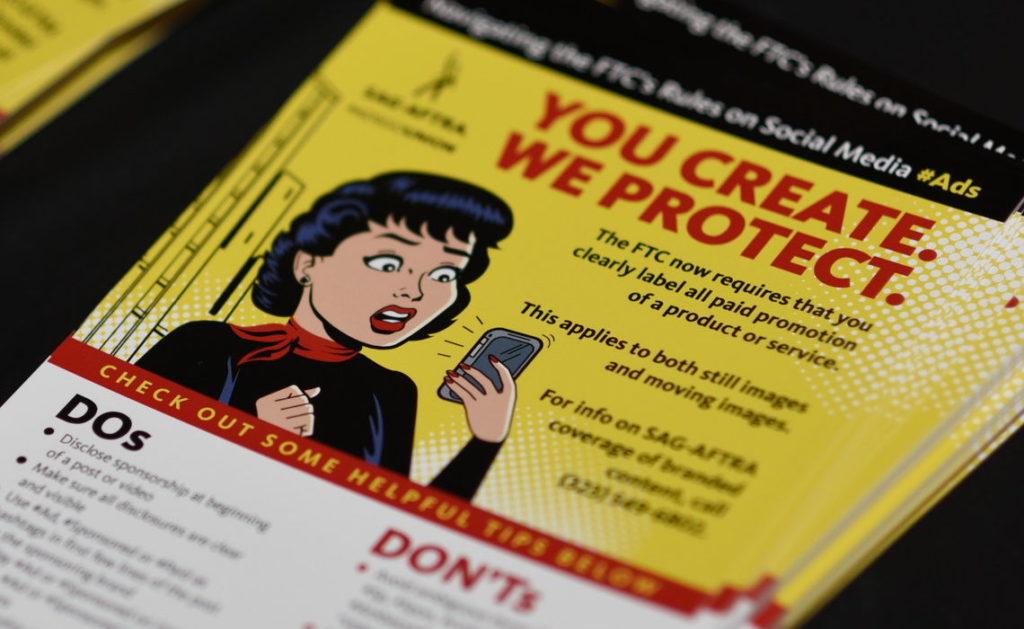A few weeks ago, we reported that the Advertising Practitioners Council of Nigeria (APCON) has started regulating adverts posted on the Nigerian internet. It wants people and businesses to submit all their adverts for vetting before they are published online.
This is bold and it makes you wonder: can APCON really regulate online adverts in Nigeria?
Why do advertising regulators exist?
To begin with, advertising regulators are important. Advertisements on traditional media like newspapers, radios and television are typically vetted by advertising regulatory bodies before they are published. This is the standard practice in most countries. They do this primarily for public safety. Regulators block indecent and inappropriate adverts like those that target children, adverts that misinform people and those that promote unregulated or illegal products and services. In the US, for instance, cigarette adverts are banned and alcohol adverts never show people who are actually drinking.
Regulators also support fair competition in the market and block companies that try to attack their competitors in adverts.
In addition, not everybody can place adverts on traditional media. In Nigeria, APCON requires that only advertising practitioners registered with it can publish adverts.
So regulators do have a place in the world of traditional media, but things are complicated on the internet.
Why is it Difficult to Regulate Online Ads
This is an interesting question.
The internet has significantly altered the advertising business and has displaced the importance of traditional media. With its borderless nature, the internet supports giant platforms like Facebook and Google who allow information sharing between people in different countries. These two companies alone account for the biggest share of the world’s $200 billion advertising market. But the borderless nature of the internet means it is hard to get these companies to adopt the laws of one country and extend it to other users on their platform.
Although many digital platforms use servers that are based in the US making them vulnerable to American legislature, their content and services are used by people in entirely different countries.
This has affected the significance of advertising regulatory bodies in every country of the world. Despite this, platforms and governments still find ways to regulate online advertising.
How are Online Ads in other Countries Regulated?
Online ads are regulated in two ways.
First, digital platforms use self-regulation to ensure that they are compliant with advertising laws in many countries. Google and Facebook observe bans on ads that target children as well as alcohol, pornography among many others. The two platforms also observe local laws around religious content, political and violent adverts.

And second, government agencies carry out regulations by themselves and impose fines of erring platforms. Although many regulators know that this is difficult, they are increasingly willing to vet online ads for scenarios where self-regulation of digital platforms failed or acted slowly.
For instance, the UK’s Advertising Standards Authority (ASA) started vetting online adverts in 2011; these include ads on social media and those on a company’s own website. According to the ASA, “88% of the 7,099 ads amended or withdrawn by the ASA during 2017 were online ads.”
Government regulators have also forced platforms to clarify when influencer marketing. In October 2018, the ASA published an “Influencer’s Guide” that ordered that influencers must not mislead people, they must specify when content is sponsored as opposed to their independent opinions. Meanwhile, America’s Federal Trade Commission (FTC) has actively monitored US social media influencers since at least 2017. It tries to find a “material connection” between social media posts and a promoted product to see if the post was properly labelled as an advert. Influencers who failed to properly make the disclosure risked formal FTC enforcement. It has enforced over 17 complaints since the start of 2019.
Both the ASA and the FTC want promoted social media posts to carry the hashtag: #ad. It’s difficult to enforce, but this tells you that Nigeria’s APCON is not wrong or alone to want to regulate online ads from the country.
Yet, there’s something wrong with its approach.
Why is APCON’s Approach An Issue?
Unlike other countries, APCON doesn’t seem to be thinking hard about how the online world is different from traditional media. The agency is simply extending its offline regulatory policies to the digital environment. Traditional advertisers pay ₦25,000 to APCON to get their adverts approved for radio, TV, billboards and newspapers. No other country does this.

Plus, the approval process is slow, as the review panel meets only twice a month. For the offline universe, this works fine. But in the fast-paced nature of online advertisement, this is bound to fail. Nobody is willing to pay ₦25,000 to vet their ads nor will they want to wait weeks before the advert is approved for publishing.
But unfortunately, APCON is not willing to reconsider how unprogressive this plan is. The agency told TechCabal that they will jail violators for six months or a ₦500,000 fine.
However, the agency may find it hard to make any reasonable progress with this effort. Besides the difficulty of imposing its will on the borderless internet, two Nigerian court cases restrict APCON from regulating adverts published by non-APCON members who are also not advertising practitioners.
The agency said it will appeal the court cases but in the meantime, it is already forging ahead with its online agenda. It has sent notice to some social media businesses ordering them to seek its permission before publishing ads online.
So it’s no surprise that APCON’s plan has generated negative reactions from social media users and tech industry stakeholders.
So the conversation is really not about whether APCON can regulate online adverts. The real question is should it regulate adverts in this manner?















